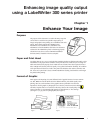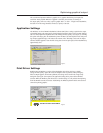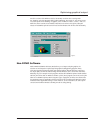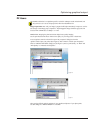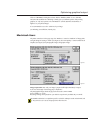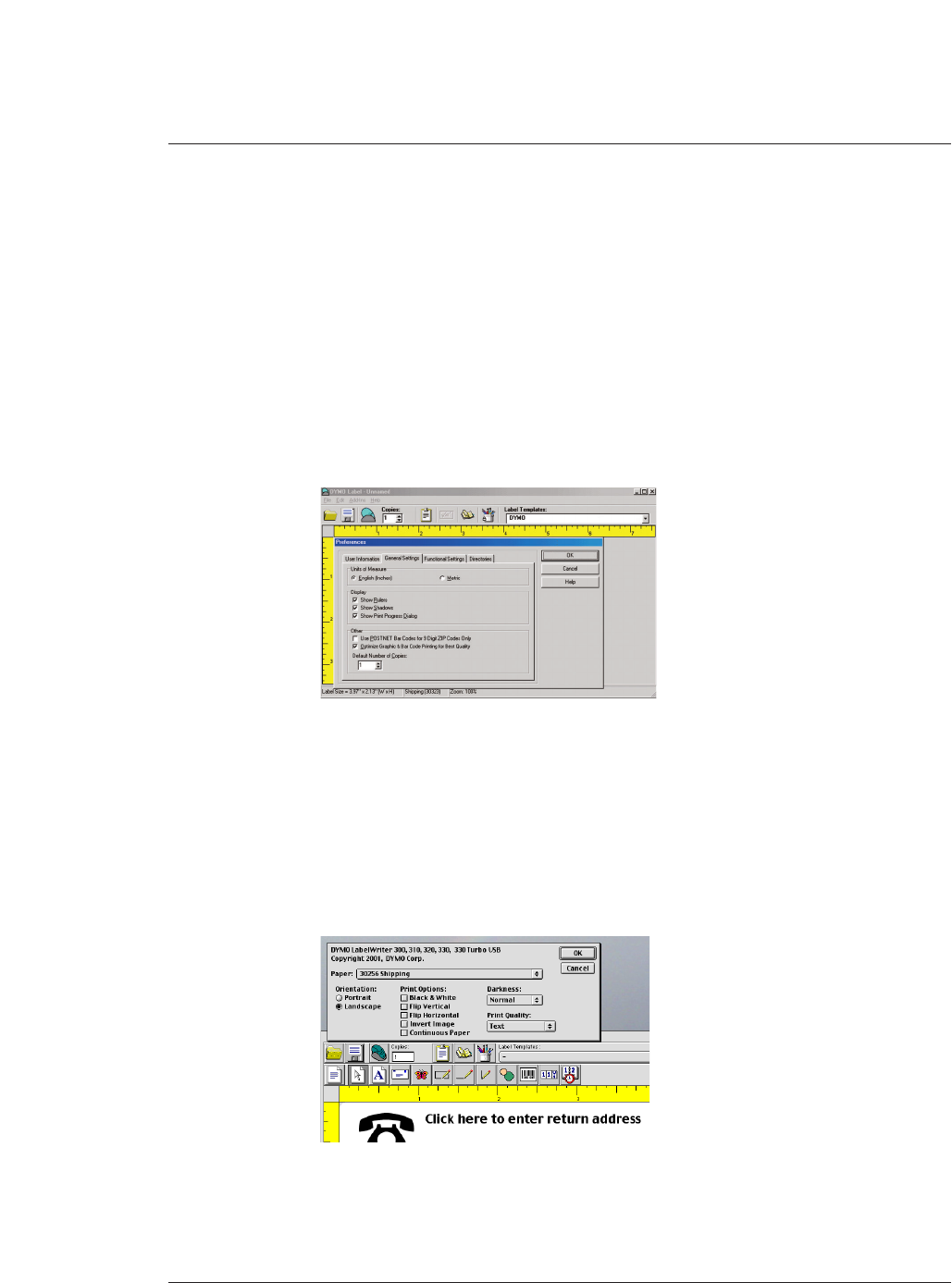
Optimizing graphical output
The second most important attribute is graphic size. A graphic should always be imported as
actual size where possible. Whenever a graphic is resized by the software, a lessening of
the output quality will occur. Thus, to print a graphic that is 1" wide x 1" high on the LabelWriter,
the ideal size of the image should be 300 dots (or pixels) x 300 dots.
Application Settings
The Windows version of DYMO LabelWriter Software (DLS) has a setting to optimize the output
of graphical images. The setting can be found under the Preference menu in the “General Settings”
tab. It is called “Optimize Graphic & Bar Code Printing for Best Quality” (See Figure 3). Utilizing
this option will always place the LabelWriter printer into Bar Code and Graphics mode when print-
ing complex graphical images. This reduces the amount of dot “blooming” and results in sharper
and more detailed graphics. Note that this setting slows down the print speed of the LabelWriter by
approximately 50%.
Print Driver Settings
Both the Mac and Windows versions of the LabelWriter print drivers also have a similar
setting for Print Quality. Again, Bar Code and Graphics mode is preferred when printing any
kind of complex graphic. On the Mac platform, this setting can be found in the “Page Setup”
dialog box (See Figure 4) and replaces the application setting that is present in the Windows
software. While the Windows print drivers have a similar setting, it is only utilized when printing
from non-DYMO versions of software. Additionally, the Windows platform offers some OS-level
controls for printing graphics.
2
Figure 3.
Figure 4.



